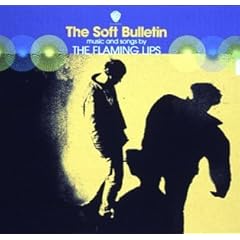
The long and the short of it...
I wrote two different-lengthed reviews of this album for the Skinny, so the question is - how long's your attention span? Goldfish should scroll down a little for the wee wan...
700-word review for The Skinny website
Los Campesinos! – Hold On Now, Youngster (Wichita) (***)
Don’t overlook the exclamation mark in Los Campesinos!, or that there was three chks in the title of their much-hyped 2006 debut “You! Me! Dancing!”. This is a band that loves to exclaim!, preferring child-like free expression to the staid social graces of adulthood. You’ll know what I mean if you know that song, an early demo of which provoked blog hysteria almost 18 months ago before finding it’s way onto every discerning indie dancefloor set in town. It was a rhapsodic ode to joyous abandon that deserved the acclaim it received, but it emerged such a long time ago that Los Campesinos! have had eons to consider how to repeat the trick for an entire album - and how to rise to the challenge of meeting rising expectations. Hold On Now, Youngster will meet the expectations of all but the most unreasonably smitten fan in every way but one: the album is sorely let down by the loudness of the production.
Whatever volume you’ve happy with for the first few seconds, when the main guitar riff of “Death to Los Campesinos!” kicks in you’ll want to turn it down. Then again, at the start of second song “Broken Heartbeats Sound Like Breakbeats”, the bandmates yell “1, 2, 3, 4!” in stereo-effect, and it’s still too loud. It beggars belief how nobody could have noticed this before release: Los Campesinos! are the last band to need extra volume in their production. Their music is already bouncy and exuberant to the extent that many critics find them irritating to the point of distraction. The opening twelve minutes of Hold On Now, Youngster are almost relentlessly annoying, particularly that second track which features more shouting, guitar lines, synths and beeps racing each other at breakneck speed, and a hi-hat slopping like a trebly mess all over it. The first enjoyable moment of the album is when it slows and softens with the introduction of violins, blending carefully into “Don’t Tell Me To Do The Math(s)”, which itself then launches into a noisy sprint that doesn’t let up for five more minutes.
So it’s testament to the strength of the final thirty minutes that Hold On Now, Youngster can still be considered a success of sorts. The sexual chemistry in the boy/girl vocals comes to the fore in the delightful “My Year In Lists”, which features the best of Los Campesinos! lyrical wit in the opening lines and in the ambiguous hook. “Knee Deep at ATP” provides further evidence of Los Campesinos! ability to be subtle when they put their mind to it. It ends with fast guitars and shouting, but after the carefully constructed build-up it’s far from the exasperating trial experienced earlier. “And We Exhale And Roll Our Eyes In Unison” shows they can reverse that process too, beginning with a hyperactive swing that threatens to unwind before tightening again for a slower, anthemic outro that will have festival crowds singing along all this summer.
Throughout, Los Campesinos! greatest weapons are their lyrics, and their violinist. Anyone can have a fast-paced wiry guitar band and claim an indie-disco hit these days, but Los Campesinos! are set apart by the gentle counterpoint of the strings, and the wittiness of their vocals. One song, titled “This is how you spell “ha ha ha” I have destroyed the hopes and dreams of a generation of faux-romantics and I’m pleased”, exemplifies both these strengths, with the hilarious title chanted joyfully in the chorus while a high violin line hangs in suspense over the verses, eager to drop in. If it can be said that Los Campesinos! were charged from the outset with the task of replicating the greatness of “You! Me! Dancing!” for the length of an album, this track is where they get closest.
It’s just so unfortunate that Hold On Now, Youngster is prevented from being a true indie-pop classic by the poor choices taken over the first twelve minutes. In the circumstances, it’s worth being creative with: don’t rip the first four tracks, pretend they don’t exist. “My Year In Lists” is the very first track, nudge nudge, of a short but perfectly formed debut LP.
--------------------------------------------------
Capsule review for The Skinny
Los Campesinos! – Hold On Now, Youngster (Wichita) (***)
You’ll have gathered from their name and their anthemic debut demo “You! Me! Dancing!” that Los Campesinos! like to exclaim! and shout! like hyperactive kids! They don’t need any more bounce in their step, but unfortunately the much anticipated debut album Hold On Now, Youngster suffers from trying too hard to add more punch in the production, meaning the breakneck-paced first four tracks are horribly loud and annoying. It’s a real shame because the remaining half-an-hour is so strong that it clearly shows Los Campesinos! have the talent in them to make an indie-pop classic. This isn’t quite it, despite the new version of that dancefloor-smashing demo, and several more tracks that replicate it’s greatest strengths: witty and charming lyrics, boundless youthful energy, and violin lines that provide a harmonious counter-balance to the quick and wirey guitar and keyboard motifs. As a front-to-back listen, Hold On Now, Youngster can be trying; but if you start it at the fifth track, there’s plenty to get excited about.













